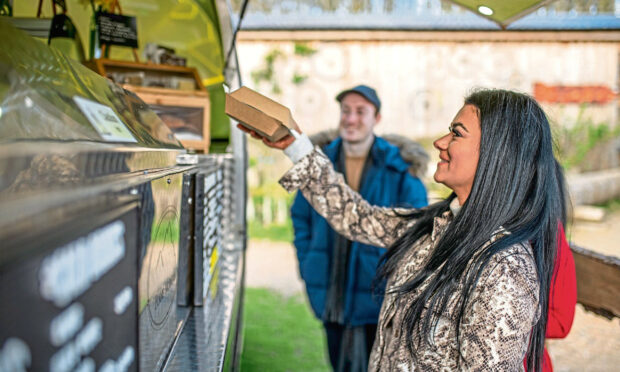Scotland’s burgeoning agritourism sector is benefiting from a growing trend for buying locally-sourced food and drink, new research has revealed.
The Scottish Agritourism Growth Tracker 2022, undertaken by VisitScotland on behalf of Scottish Agritourism, found that money generated by farm retail increased by almost £50 million during the first year of the pandemic, rising from £62m to more than £110m.
The findings highlight the significant value and opportunity for Scotland’s farms, rural communities and visitor economy of including a food and drink experience as part of Scotland’s agritourism offering.
More than a third of agritourism businesses are offering food and drink consumption on site. This can include farm produce enjoyed as part of a holiday on a farm, in a farm cafe or after a farm tour.
More than half of respondents said they sell their produce online (55%), in an on-farm shop (36%) or via an on-farm honesty box (29%).
It is believed the boom in farm retail sales is a result of growing awareness of the economical, ethical and environmental benefits of buying directly from local farmers.
In recent years, particularly during the pandemic, agritourism has become a growing travel trend with visitors seeking out authentic rural experiences that connect them to the countryside and Scotland’s natural larder.
Agritourism worth around £60m to the Scottish economy
The 2022 tracker was undertaken to monitor the progress and potential of the sector.
It found agritourism on its own is currently worth around £60m to the Scottish economy.
Unlike other sectors, agritourism continued to perform well during the pandemic, demonstrating its strong appeal to local and domestic markets.
As well as food and drink, potential growth areas include farm experiences and tours, accommodation, and event space.
A second survey confirmed many of the findings from the first around the unparalleled and wide-ranging benefits of agritourism to Scotland. It again found that, as well as the opportunity for strong economic growth, the industry played an important role in sustaining and creating rural jobs, supporting vital family employment, and providing equal and inclusive roles for men and woman across various ages and skill levels.
Rural Affairs Secretary Mairi Gougeon said: “I am delighted to see the growing popularity of agritourism.
“It allows consumers to engage directly with producers and learn first-hand how their food is made, while making an important contribution to our rural economies.”
Rob Dickson, VisitScotland director of industry and destination development, said: “Despite the significant challenges of Covid-19 in 2020-21, this report clearly shows that agritourism continues to draw visitors from far and wide and has developed into a popular sector.
“Agritourism is helping address important societal issues such as inclusivity, rural employment and depopulation.”


Conversation